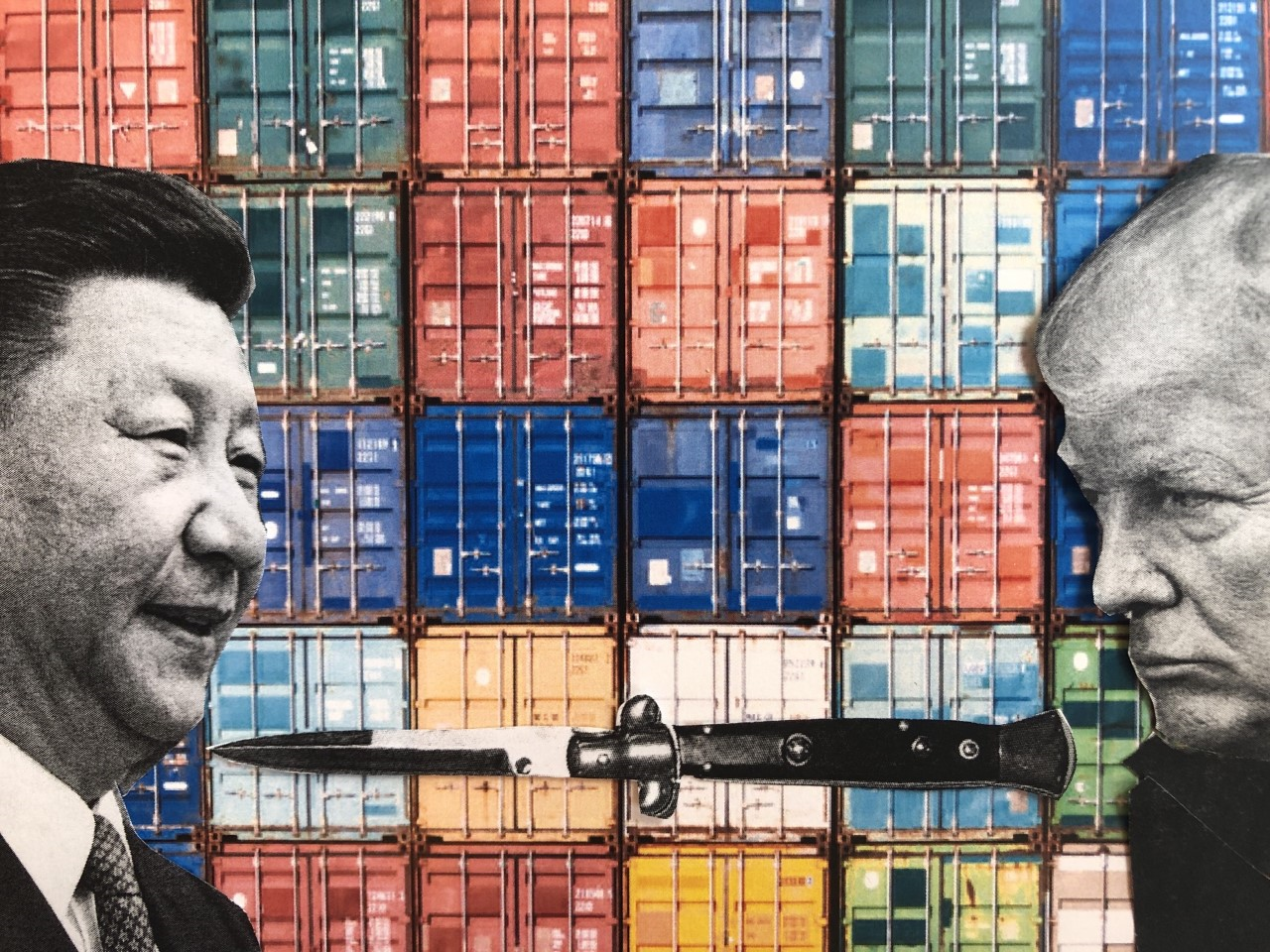May 07, 2019
China has long insisted that it won't negotiate a new trade pact with the US with "a knife at its throat." Over the weekend, US President Donald Trump flipped open the switchblade.
In a series of tweets, he blasted Beijing for taking advantage of the US economy, and threatened to sharply increase tariffs on everything China exports to the United States.
Coming just days before China's top negotiator was expected in Washington for a crucial – and perhaps final – round of trade talks, the tweets threw global financial markets into turmoil for several hours as investors worried that the world's two largest economies might fail to reach a deal for the foreseeable future.
What's the background?
For months, the US and China have been negotiating a trade agreement. Washington wants Beijing to make it easier for American firms to do business in China, cut back on government support for Chinese tech firms, stop stealing US technology, and buy more American agricultural goods.
Beijing sees these demands as part of an American attempt to stop China's rise as a global power. So while China has been willing to make life easier for US firms, it's less enthusiastic about cutting subsidies for Chinese companies or boosting purchases of US goods.
As a negotiating tactic, the Trump administration earlier this year slapped a 10 percent tariff on $200 billion worth of Chinese goods, and it has threatened to raise that to 25 percent if China doesn't meet US demands. Trump, unhappy with the pace of progress in negotiations, now says that will happen on Friday.
What's more, he's poised to put a 25 percent tariff on the remaining $325 billion of Chinese exports to the US, and "soon." That would mean higher prices for US consumers on virtually all Chinese goods bought in the United States – furniture, clothes, cars, electronics, you name it.
Why is this happening?
It's probably a combination of these three factors.
It's Trump's style: Making extreme demands and then stepping magnanimously back toward compromise is a long-established Trump negotiating tactic, particularly on trade. With a critical round of negotiations coming up, Trump now wants maximum leverage.
It's Trump's advisers: Hardliners on China within the Trump administration – in particular chief trade negotiator Robert Lighthizer – may have Trump's ear now. Some reports say Trump's tweet storm followed Lighthizer's complaints that China is reluctant to codify the terms of any new US-China deal into law. This – along with the question of how to ensure China actually complies with any new agreements – has long been a sticking point in talks.
It's the economy: Recent data say the US economy is rocking – "killing it" even. This gives the president more room to turn the screws on the US' largest trading partner without worrying about adverse effects, at least in the short term.
What happens next?
Neither side wants to lose face. Barring a massive concession from Beijing – or a dramatically gracious climbdown by Trump out of deference to his "good friend" Xi Jinping – Friday will mark a significant escalation in the trade war between the world's two largest economies, one that could last into the 2020 US presidential election and beyond.
More For You
- YouTube
Who decides the boundaries for artificial intelligence, and how do governments ensure public trust? Speaking at the 2026 World Economic Forum in Davos, Arancha González Laya, Dean of the Paris School of International Affairs and former Foreign Minister of Spain, emphasized the importance of clear regulations to maintain trust in technology.
Most Popular
Moldovan President Maia Sandu speaks during a Council of Europe diplomatic conference to launch the International Claims Commission for Ukraine, aimed at handling compensation claims related to Russia's war in Ukraine, in The Hague, Netherlands, December 16, 2025.
REUTERS/Piroschka van de Wouw
The president of the tiny eastern European country has suggested possibly merging with a neighbor.
Hard numbers: US pitches “New Gaza,” Japan paves way for snap elections, “Sinners” smashes records, & More
Jan 23, 2026
Middle East negotiator and son-in-law of President Trump, Jared Kushner talks with Israeli diplomats following a joint press conference in the State Dining Room of the White House in Washington, DC, USA, 29 September 2025.
$25 billion: The minimum amount of investment required to fulfil Jared Kushner’s ambitious property plan for Gaza.
- YouTube
Who decides how much control a country should have over its technology? Speaking at the 2026 World Economic Forum in Davos, former UK Prime Minister Rishi Sunak discussed the balance between national sovereignty and global interdependence.
© 2025 GZERO Media. All Rights Reserved | A Eurasia Group media company.
